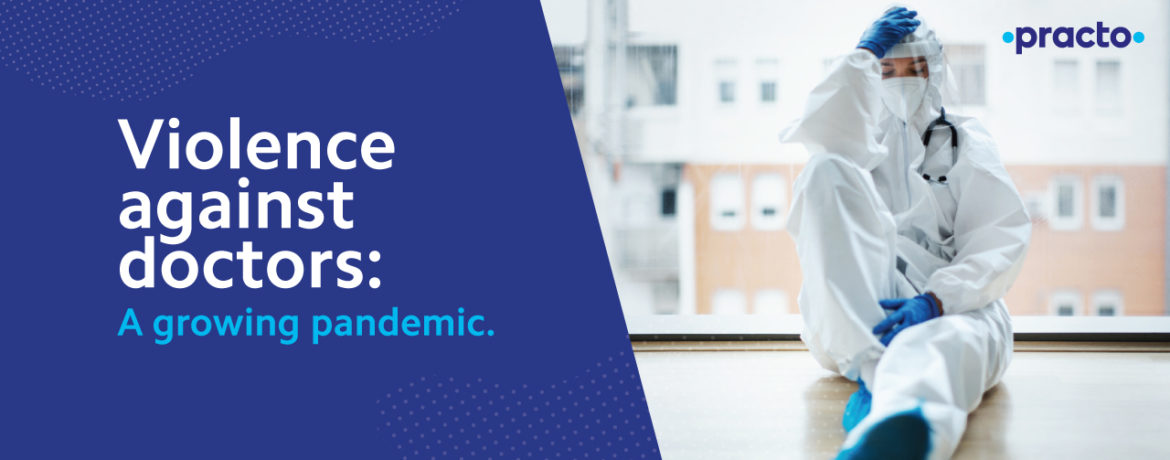
Violence against doctors: A growing pandemic
A year ago, a doctor working in a Coronavirus facility in Hyderabad was assaulted by a throng of unknown sympathizers and relatives of a patient who had died in the hospital. Raising incendiary slogans and clenched fists, they became part of a script that continued to repeat itself as more reports of COVID-19 filtered through.
As the sound of clinking utensils faded into the background, reality came into focus with gratitude for healthcare workers getting replaced by distrust and aggression.
“Incivility, bad behavior and even brutal attacks in healthcare settings is nothing new, but this has intensified since the outbreak began,” says Dr Anindya Dasgupta, a General Physician (GP) who practices at a private hospital in Kolkata. “In fact, in addition to frontline workers bearing bad news, nurses, resident doctors, security guards as well as housekeeping staff have also been targets of verbal, physical, and psychological violence,” he adds.
As per Dr Dasgupta, these incidents – no matter how frequent or sporadic – fractures the sense of safety that a healthcare facility should exemplify.
“By resting all hopes on doctors, some people tend to have unrealistic expectations of them,” says Dr Dasgupta. “Especially in cases where patients are admitted in a critical state, they erroneously assume that things can only get better after they get medical care. This may not always be true since there are certain variables we have little control over. But nobody wants to hear that,” he adds.

Indian Medical Association Medical Students Network (IMA MSN) show their solidarity for violence against doctors on National Protest Day
Rising trend of violence against doctors
According to a report released by the Occupational Safety and Health Administration (OSHA), workplace violence in healthcare was four times more common than in the private industry between 2002 and 2013. In fact, there are vast troves of data available that can help corroborate this. Even in India, nearly 75% of doctors have reportedly encountered some form of violence during their practice.
This has taken on new forms amid mounting Coronavirus cases, with many being asked to vacate their rented houses by property owners, and some even being denied burial grounds by irate mobs.
“If extended hours of work and the weight of responsibility as frontline warriors fighting COVID-19 will not fuel burnout, the psychological distress caused by these incidents can and will affect healthcare delivery,” says Dr Arockia Virgin Fernando, an infertility specialist, who had previously worked as a gynaecologist for nearly a decade. In fact, verbal abuse has been shown to negatively impact a healthcare worker’s diagnoses and procedural performance.
While violence against doctors may be more common in government hospitals where security measures are weaker, incidents of destruction of hospital property and vandalism of quarantine facilities have become common across all healthcare settings during this pandemic. But instead of introducing punitive measures to tackle this, Dr Fernando feels that showing empathy for people’s situations can go a long way.
“Long waiting hours and hospitals’ refusal to admit COVID-19 patients due to limited space are serious issues from their perspective. And when they have to deal with a patient’s death, being left in the dark about their situation throughout the course of the treatment can trigger such responses,” she says, explaining, “It is important to keep relatives regularly updated about the patient’s condition. In the absence of information, fear, uncertainty and anxiety can cloud their judgement, reinforcing a deeper form of discontentment and distrust towards the caregivers.”
While this may solve a part of the problem, the larger malaise is the high out-of-pocket medical expenditure that comes in unexpectedly. This may lead many families into a debt trap, creating financial anxiety that could escalate to violent episodes. While this is a deeply nuanced issue that calls for a larger conversation, greater awareness of health insurance in India and its higher penetration will be critical.





